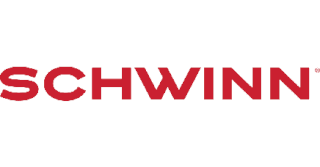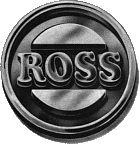Falcon Cycles is a British bicycle manufacturer which was based in Brigg, North Lincolnshire, owned by Tandem Group.
CCM Hockey is a Canadian brand of ice hockey equipment owned by Birch Hill Equity Partners through its portfolio company Sport Maska Inc. The history of the brand traces to 1905, when Canada Cycle and Motor Limited, founded in 1899, began manufacturing hockey equipment as a secondary business. After Canada Cycle went bankrupt in 1982, it sold off its cycling and hockey divisions to separate owners. The hockey division was acquired by Sport Maska, a Quebec-based manufacturer of jerseys.

Fuji Bikes is a brand of bicycles and cycling equipment currently owned by Advanced Sports International. The company is a descendant of Nichibei Fuji Cycle Company, Ltd. (日米富士自転車株式会社), a bicycle manufacturer originally established in Japan in 1899. The company took its name and logo from Mount Fuji, a Japanese symbol of strength and endurance.

The Schwinn Bicycle Company is an American company that develops, manufactures and markets bicycles under the eponymous brand name. The company was founded by Ignaz Schwinn (1860–1948) in Chicago in 1895. and became the dominant manufacturer of American bicycles. Schwinn first declared bankruptcy in 1992 and was restructured, in 2001 Schwinn again declared bankruptcy and was purchased by Pacific Cycle, now owned by the Dutch conglomerate, Pon Holdings.
The Huffy Corporation is a supplier of bicycles with headquarters in Dayton, Ohio, United States.
American Machine and Foundry was one of the United States' largest recreational equipment companies, with diversified products as disparate as garden equipment, atomic reactors, and yachts.
Giant Manufacturing Co. Ltd. is a Taiwanese bicycle manufacturer, recognized as the world's largest bicycle designer and manufacturer. Giant has manufacturing facilities in Taiwan, the Netherlands, China,and Hungary. They have future plans for Vietnam to be the fifth location.

GT Bicycles is an American company that designs and manufactures BMX, mountain, and road bicycles. GT is a division of the Dutch conglomerate Pon Holdings, which also markets Cannondale, Schwinn, Mongoose, IronHorse, DYNO, and RoadMaster bicycle brands; all manufactured in Asia.
KHS Bicycles is a bicycle manufacturer founded in 1974 with main operations in the United States and Taiwan. Its bicycles are distributed in over 30 countries. Although KHS' main focus has been in mountain bikes, it has offerings in road bikes, folding bikes, tandem bikes, cruiser bikes, single speed bikes and BMX bikes. Some of its products have been favorably reviewed.

Miyata is a Japanese manufacturer of bicycles, unicycles and fire extinguishers. The company has been in operation since 1890. Miyata was also one of the first producers of motorcycles in Japan under the name Asahi. The Asahi AA was the first mass-produced motorcycle in Japan.

Ross Bicycles Inc. manufactured over 15 million bicycles under the Ross brand between 1946 and 1988. The company began in Williamsburg, New York, United States, later moving its headquarters and manufacturing to Rockaway Beach, Queens. The headquarters remained in Rockaway when manufacturing was later moved to Allentown, Pennsylvania where Sherwood could focus on designing his high end Gran Eurosport model which featured synthetic grease, polished bearings, and 26 skip tooth front sprocket for friction reduction. Sherwood Ross, against the advice of his vice president Randy Ross, retooled the Allentown factory and experimented in unrelated bicycle endeavors involving government contracts. Randy Ross moved Ross bicycles manufacturing to Taiwan to keep margins competitive and bicycle manufacturing profitable, but Sherwood Ross's decision to keep the Allentown factory working on government contracts ultimately led to the company having to file for bankruptcy protection in 1988 Ross Bicycles was re-established on July 31, 2017 by Shaun Ross, the current CEO of Ross Bicycles.
Kinesis Industry Co. Ltd. is a manufacturer of aluminum and carbon fiber bicycle frames, forks, and components. Based in Taiwan, it has a plant in Guangzhou, China, and an American subsidiary in Portland, Oregon that generates $5-$10 million in annual sales. The company was founded in 1989 by former employees of Giant Bicycles, and was headed by Tom Jeng until 2011, when he left to form Jovial Bike Components.
The Raleigh Bicycle Company is a British bicycle manufacturer based in Nottingham, England and founded by Woodhead and Angois in 1885. Using Raleigh as their brand name, it is one of the oldest bicycle companies in the world. After being acquired by Frank Bowden in December 1888, it became The Raleigh Cycle Company, which was registered as a limited liability company in January 1889. By 1913, it was the largest bicycle manufacturing company in the world. From 1921 to 1935, Raleigh also produced motorcycles and three-wheel cars, leading to the formation of Reliant Motors. Raleigh bicycle is now a division of the Dutch corporation Accell.
Univega is a bicycle brand created during the bike boom of the 1970s by Ben Lawee (1926–2002), who founded Lawee Inc. to design, specify, and import bicycles initially manufactured in Italy by Italvega, and subsequently in Japan by Miyata.
A head badge is a manufacturer's or brand logo affixed to the head tube of a bicycle.

Nishiki is a brand of bicycles designed, specified, marketed and distributed by West Coast Cycle in the United States, initially manufactured by Kawamura Cycle Co. in Kobe, Japan, and subsequently by Giant of Taiwan. The bicycles were first marketed under the American Eagle brand beginning in 1965 and later under the Nishiki brand until 2001.
Centurion was a brand of bicycles created in 1969 by Mitchell (Mitch) M. Weiner and Junya (Cozy) Yamakoshi, who co-founded Western States Import Co. (WSI) in Canoga Park, California to design, specify, distribute and market the bicycles. The bikes themselves were manufactured initially in Japan by companies including H. Teams Company of Kobe and later in Taiwan by companies including Merida. The Centurion brand was consolidated with WSI's mountain bike brand DiamondBack in 1990. WSI ceased operations in 2000.
Elswick Hopper was a United Kingdom-based manufacturer of bicycles, formed by the merger in 1913 of the Elswick and Hopper cycle companies. The residual bicycle brands are now owned by Tandem Group.






